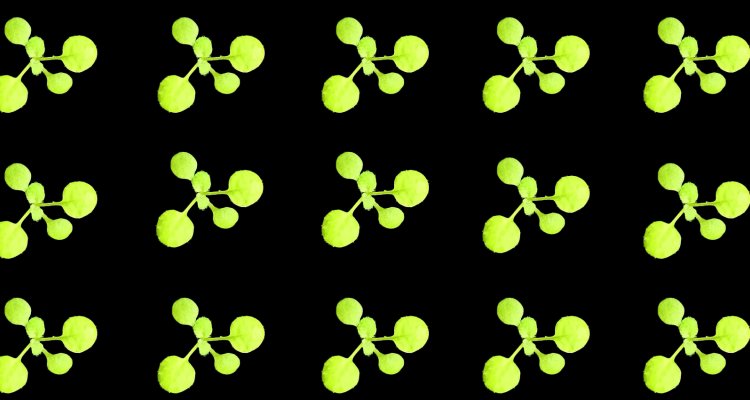
The TimES Lab (Romanowski Group)
In our group, we work on understanding the relationship between the circadian clock and environmental signals, focusing on how this interaction influences plant plasticity and development. We use cutting-edge methods spanning different fields of research to explore how the circadian clock affects the adaptability and resilience of plants. Our work holds significant promise for agriculture, as it sheds light on the potential to improve plant productivity and contribute to crop enhancement programs. Our ultimate goal is to translate our findings to advance crop improvement programs, thus contributing to food security and sustainable agriculture. We invite you to explore our lab's exciting work and be part of our goal to create a sustainable and more productive future.
By choosing to do your MSc thesis or internship with us, you will get the opportunity to work with molecular biology, cell biology, classic genetics, plant physiology and bioinformatics techniques to address pressing questions in plant biology. In addition to that you will become an integral part of our team, engage in scientific discussions, and work on your presentation skills, thereby enhancing your transferrable skills!
Come and join us! See our current open topics below:
Topics
Genome editing to study plant plasticity
At the TimES lab, we use CRISPR-Cas to perform targeted mutagenesis. This essential tool of reverse genetics allows us to investigate the biology of plant plasticity.
Depending on project availability and/or thesis duration, a typical project might involve gRNA design, golden gate cloning and, depending on project availability and thesis duration, plant transformation and analysis of mutations/deletions created.
Synthetic biology to tweak plant development and productivity
SynBio is here to stay. At the TimES lab, we use SynBio approaches to tweak plant biology.
Depending on project availability and/or thesis duration, a typical project might involve construct design, gene synthesis and cloning, protoplast generation and transfection and/or plant transient transformation to test the novel constructs/designs.
Timing of environmental variables affecting plant development and productivity
As our lab name implies (TimES – Timing of Environmental Signalling), we care about how environmental signals can have different effects depending on their timing. We want to understand several things:
- Which and What? Which cue (biotic or abiotic) and what does it do?
- When? At which point in time does this happen?
- Where? Where does this happen (cellular, tissue, organism levels)
- How and Why? What’s the mechanism behind it?
Depending on project availability and/or thesis duration, a typical project might include plant physiological assays in specific environmental conditions using cabinets with fine environmental control, dynamic tracking of gene expression or protein levels using bioluminescent reporters, cloning, qPCR, transgenic plant generation and selection, DIC/confocal microscopy, bioinformatics, classical genetics, and many other plant biology, cell biology and molecular biology techniques depending on the project requirements.
Bioinformatics – -omics data analysis and/or web-app development
Bioinformatics tools and skills are essential to help us better understand plant biology. At the TimES lab, we use in-house generated and publicly available -omics datasets to answer plant biology questions.
Do you have R/python programming skills? Would you like to help us develop an online database using R Shiny or Shiny for Python? Are you a Computer Science-related field BSc/MSc student interested in bioinformatics/plant biology, or a Plant biology-related field BSc/MSc student interested in bioinformatics/programming? Then these types of projects are for you!